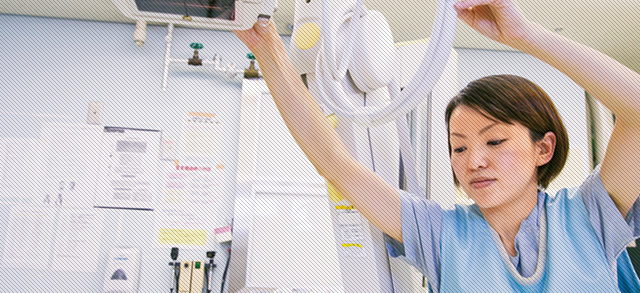Health Information Analyst / Health Information Management and Analysis
Master's Program
In recent times, the role of medical care information analysis practitioners and experts, which indirectly supports hospital management, has become more and more important for improving hospital management while maintaining medical quality in the face of rapidly changing disease structures and medical environments. We hope to utilize medical information effectively to improve hospital management and medical quality by digitizing medical treatment information and expanding use of the Diagnosis Procedure Combination System.
In addition to knowledge and skill in medical treatment information management, talented individuals are increasingly sought who can record accurate medical documents, analyze and evaluate these documents, support their effective use, provide information necessary for improvement of medical quality and effective administration, and propose a plan for management improvement.
Thus, as part of our Graduate School’s master’s program, we established a medical treatment information analyst training field in 2008. In this field, we prepare students not only to acquire qualification as a “medical treatment information management person,” but also to analyze medical treatment information more precisely.
Students may attend lectures at the each campus (Tokyo, Odawara, Atami, Fukuoka, Okawa ) as well as the Ohtawara School by way of the IUHW remote teaching system. In addition, we have prepared a supplement system, through which students can access video lectures at home or in the workplace using Video on Demand if they cannot participate in class meetings.
Doctoral Program
As part of the IUHW Graduate School’s doctoral thesis course, we established the field of medical treatment information management and analysis in 2010. In the master’s course (medical treatment information analyst training field), we promote education primarily on management, analysis, and utilization of medical information for individuals engaged in medical treatment information management; the doctoral program opens the door to students who wish to push on with further study.
Necessary knowledge and hospital management techniques include (1) medical record writing; (2) medical treatment information management; (3) medical fees, including the Diagnosis Procedure Combination System (remuneration for medical treatment according to diagnosis group classification); (4) information processing; (5) incomes and expenditures of the medical profession; and (6) making financial statements, evaluations, descriptions, and suggestion plans for improvement of hospital management and medical quality to hospital administrators.
However, there no unified study system currently covers a wide variety of fields; it remains a process of trial and error. Therefore, we plan to systematize study of the topics stated above through management and analysis of medical treatment information, and aim to foster talented, highly moral individuals to maintain medical quality, equipping them with sufficient knowledge on the medical expenses system, management techniques, and information processing skills.
Other Department
- Graduate School of Public Health(Professional Degree Program)Opened in April 2024
- Graduate School of Medicine
- Nursing
- Training System for Nurses Pertaining to Specified Acts
- Midwifery
- Physical Therapy
- Occupational Therapy
- Speech,Language and Hearing Sciences
- Orthoptics and Visual Sciences
- Assistive Technology Science
- Rehabilitation
- Radiological Science
- Clinical Science in Embryology
- Education and Management in Health and Welfare
- Medical Laboratory Science
- Health Service Management
- Disaster risk management for health
- Health Information Analyst/Health Information Management and Analysis
- Development of Care and Network
- Health and Social Service
- Journalism on Health and Welfare Issues
- Health Care Interpreting and International Health Service Management
- Clinical Psychology in Health and Welfare
- Graduate School of Pharmaceutical Sciences/Graduate School of Pharmacy
